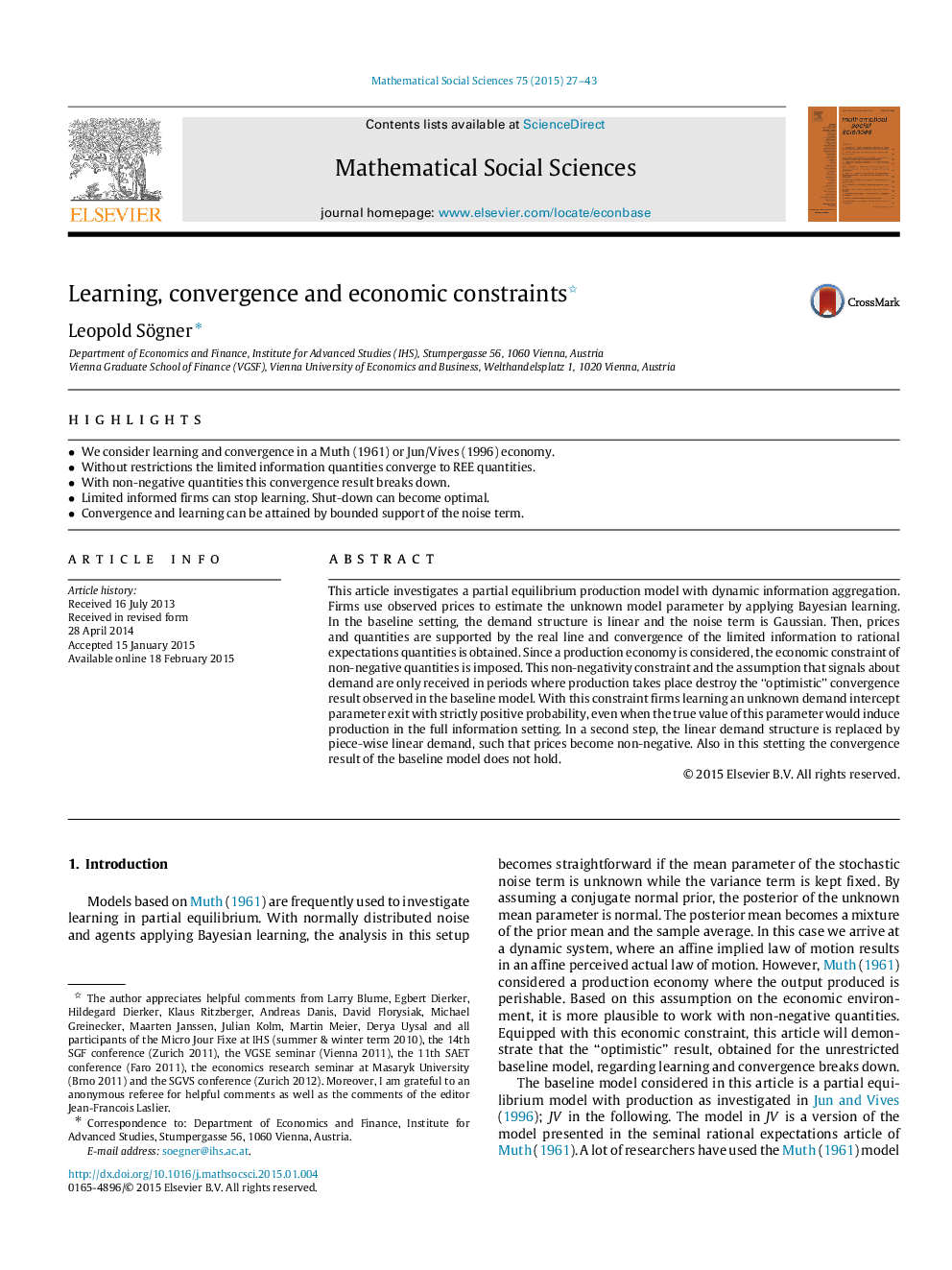| Article ID | Journal | Published Year | Pages | File Type |
|---|---|---|---|---|
| 972529 | Mathematical Social Sciences | 2015 | 17 Pages |
•We consider learning and convergence in a Muth (1961) or Jun/Vives (1996) economy.•Without restrictions the limited information quantities converge to REE quantities.•With non-negative quantities this convergence result breaks down.•Limited informed firms can stop learning. Shut-down can become optimal.•Convergence and learning can be attained by bounded support of the noise term.
This article investigates a partial equilibrium production model with dynamic information aggregation. Firms use observed prices to estimate the unknown model parameter by applying Bayesian learning. In the baseline setting, the demand structure is linear and the noise term is Gaussian. Then, prices and quantities are supported by the real line and convergence of the limited information to rational expectations quantities is obtained. Since a production economy is considered, the economic constraint of non-negative quantities is imposed. This non-negativity constraint and the assumption that signals about demand are only received in periods where production takes place destroy the “optimistic” convergence result observed in the baseline model. With this constraint firms learning an unknown demand intercept parameter exit with strictly positive probability, even when the true value of this parameter would induce production in the full information setting. In a second step, the linear demand structure is replaced by piece-wise linear demand, such that prices become non-negative. Also in this stetting the convergence result of the baseline model does not hold.
